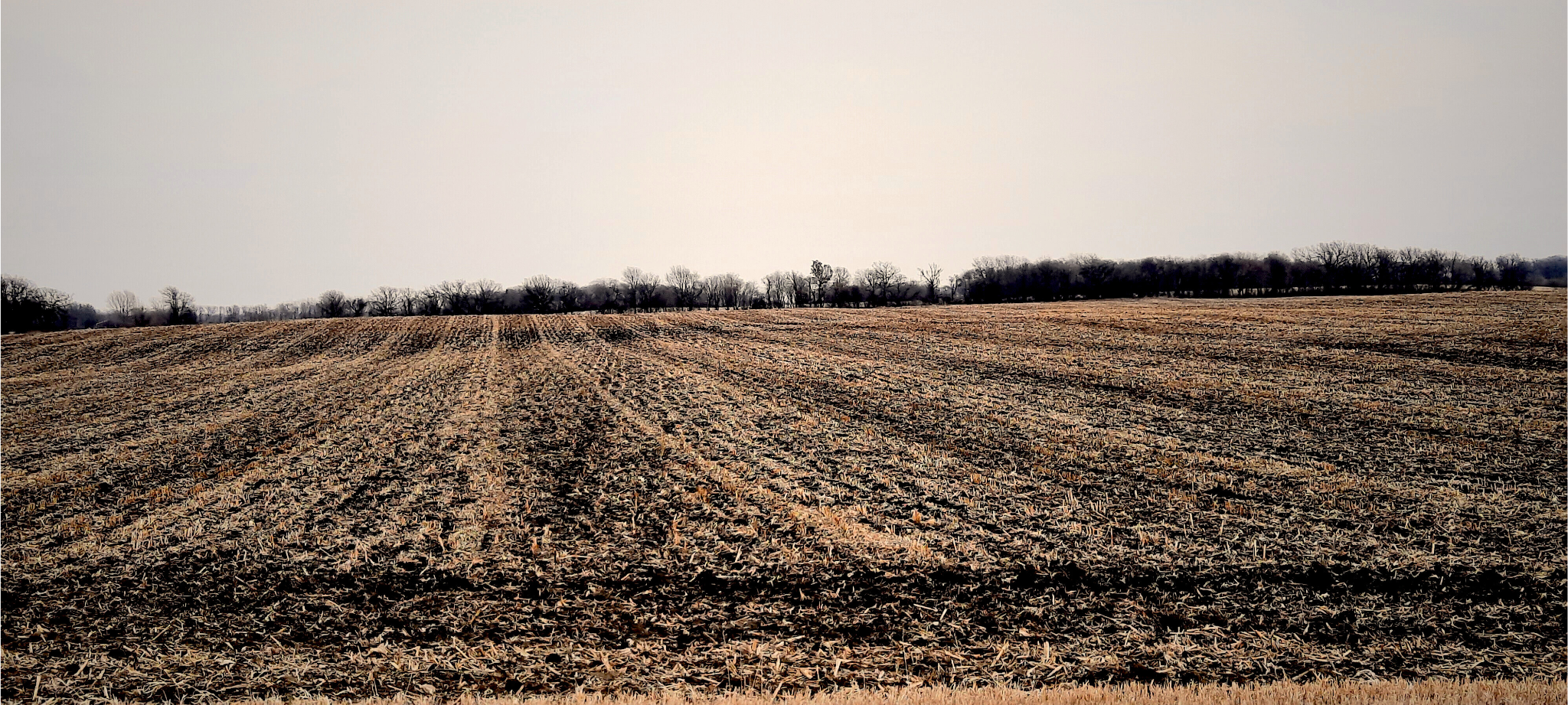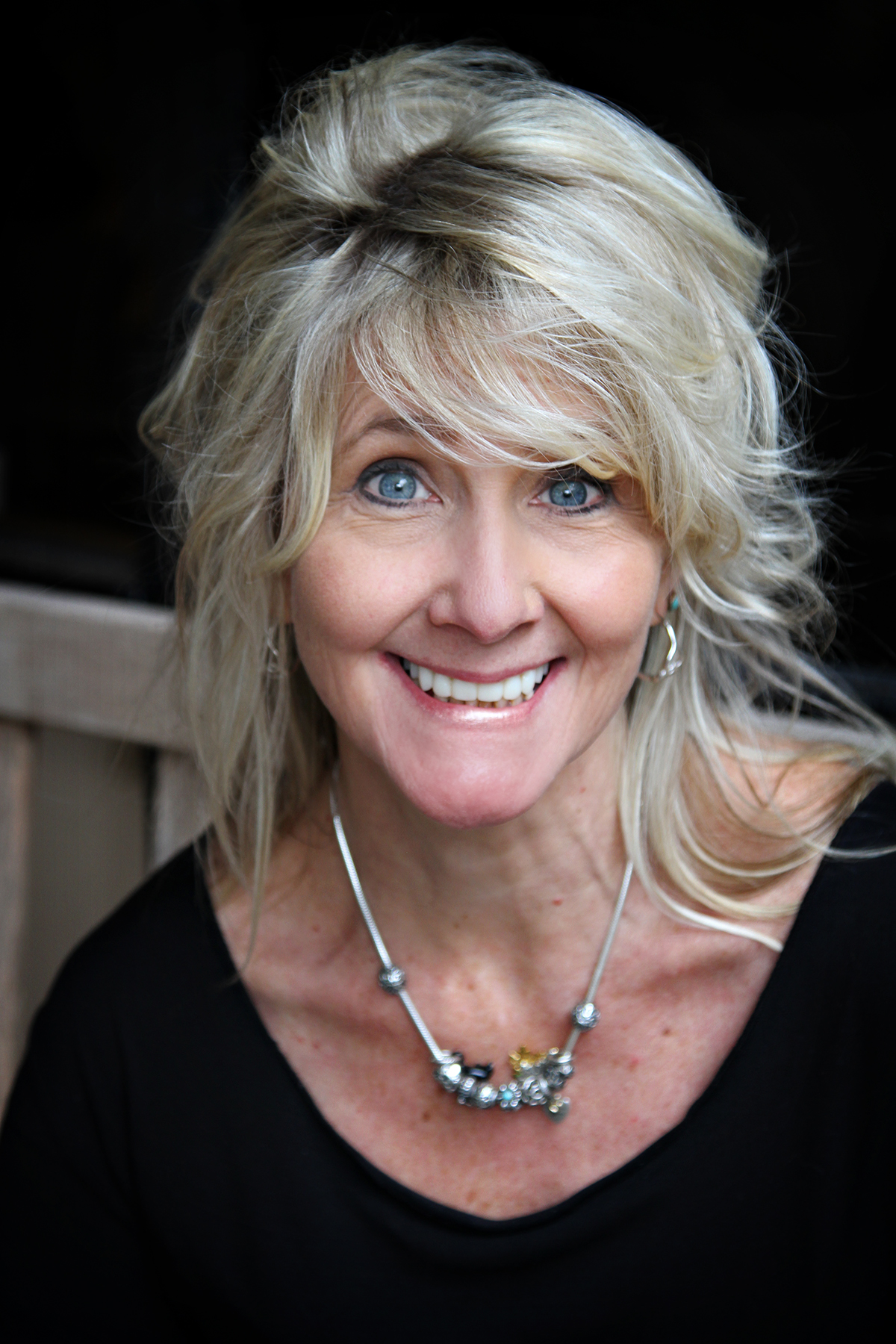To walk in the woods, mindful only of the physical extent of it, is to go perhaps as owner, or as knower, confident of one’s own history and of one’s own importance. But to go there, mindful as well of its temporal extent, of the age of it, and of all that led up to the present life of it, and of all that may follow it, is to feel oneself a flea in the pelt of a great living thing, the discrepancy between its life and one’s own so great that it cannot be imagined. One has come into the presence of mystery. After all the trouble one has taken to be a modern man, one has come back under the spell of a primitive awe, wordless and humble.
— Wendell Berry, The World-Ending Fire, “A Native Hill”
I‘m standing in the field of my paternal great grandparents’ homestead in southern Minnesota. I stomp my booted feet in the corner of the dusty, charcoal grey-black dirt. This front field corner is bordered by a grassy ditch and a gravel driveway leading to the yard where my dad and his family lived and worked their farm. The place where Dad and his siblings were born and raised. And every trip back to my midwest roots, I reclaim my ‘mental real estate.’
Each visit to the farmland of Dad’s childhood reminds me of stories told to me about my brave ancestors who journeyed here from Norway and Denmark. They laid claim to this ground long ago, when the flat territories were staked out in a quilted pattern of family farms. The locals knew who owned each and every field, silo, and barn. Fences and piles of field stones marked boundary lines that were respected by all. They probably never heard of Robert Frost or his poetry, but they have always abided by the idea that “good fences make good neighbors.”[1] Each farm was a representative banner of the farmer who owned it. Some yards were littered with machinery encircled in foxtails and wild brambles. Others were graced with perfectly manicured gardens filled with trellises of morning glories, rows of beans and peas, tomato cages, and mounds of squash plants. Some fields were judged by the stray weeds in the rows, others were pristine with a pile of field stones marking the end of each line of corn. But each farm held the family history of those who dwelled on the acreage.
I drag the toe of my boot in the field dirt, slowly breathing in the loamy smell of the cattail-rimmed lake and watch the mallards glide over the water. What would my Great-grandfather Gunder say if he was standing next to me? Would he put his hand on my shoulder and ask me about my church and if I had a garden? Those things are important. I’m sure he would ask about my family, especially the kids and what they were interested in. Maybe we would just stand in the field and listen to the bald eagles pip and cheep in the trees by the lake. Or we would chat about “how the soybean fields over at the Olson place were filled with weeds and what kind of man would allow that to happen.” He led a simple life compared to mine. And in the scope of eternity, that life was as significant and meaningful as any other. Gunder staked his claim in this rural acreage long ago and contributed to the legacy of my family, his stoic nature and quiet determination gene-deep in generations after him.
What would we not talk about? The crazy-complicated life lived in these days that fragments the soul and the mind, dividing our time between big screens and little apps in the endless pursuit of the temporary. Meetings and more meetings to plan meetings, which begets events and more meetings until life seems to be an endless process of pushing sand uphill with a fork. And here I stood with a full calendar and a hollowed-empty feeling. My life didn’t have boundaries and stone markers. My fence posts were tipped over and the cattle had run amok. Great-grandfather Gunder would probably give me a side eye and a quiet “Huh, sounds busy.” Yes, so busy.
“Come now, you who say, ‘Today or tomorrow we will go into such and such a town and spend a year there and trade and make a profit’ — yet you do not know what tomorrow will bring. What is your life? For you are a mist that appears for a little time and then vanishes.” (James 4:13-14, ESV)
So, I make the dusty drive over the narrow, gravely road to stand in the place of my ancestors — to be reminded of what is lasting and what is vapor. I have memories of Gunder’s house, sparse in furnishings or decor because excess was unnecessary. During our recent move to another state, I became painfully aware of excess and of the glorious rest that is experienced without it. While packing boxes, my thought was “You know, people used to live and raise families just fine without gadgets and decorative tchotchkes.” Add to that list the mental clutter of technology, apps, news feeds, and social media and you have the perfect storm of disconnection to what is real.
I take in a deep breath of farmland air and sigh, imagining the gaze of my great-grandfather’s sky-blue eyes meeting mine. Then my perspective shifts. My life, this time, our world is so fleeting and I remember again what is lasting and important. Shared stories with my family that establish who we are and the richness of our history. Revisiting the farmland that supplied what was necessary and where our roots are still deep. Essential pieces in life’s puzzle. The rest is just stuff.
I pick up a grey dirt clump and rub it between my hands, watching the dust as it is carried away in the breeze. This dirt has outlasted generations and will outlast me too. The foundations always do and as I walk away, I meditate on things to cling to and what to cast off. What is keeping me from the timeless and transcendent? Once again, I’ll re-establish my life-boundaries in order to cultivate the goodness and beauty that, like Truth, lasts.
Where, except in the present, can the Eternal be met?
— C.S. Lewis, Christian Reflections, “Historicism”
![]()
[1] Robert Frost, “Mending Wall”
The featured image is courtesy of Annie Nardone and is used with her kind permission for Cultivating.
Annie Nardone is a lifelong bibliophile with a special devotion to the Inklings and medieval authors. She is a Fellow with the C.S. Lewis Institute and holds an M.A. in Cultural Apologetics from Houston Christian University. Annie is the Director of Visual Artists for The Cultivating Project and columnist for Cultivating Magazine. She is founding board member, managing editor, and author for the apologetics quarterly, An Unexpected Journal. Her writing can also be found as travel blogger for Clarendon Press U.K., with published poems at Calla Press and Poetica.
She holds a MA in Cultural Apologetics from Houston Christian University, and is a Fellow with the C.S. Lewis Institute. Annie writes for Cultivating, Literary Life, and Clarendon House Books, and is a managing editor and writer for An Unexpected Journal. Annie collaborated on three books in 2022, published by Square Halo Books and The Rabbit Room. She recently designed a curriculum detailing the intersection of theology, the arts, and history and is a Master Teacher for HSLDA. She resides in Florida with her Middle Earth/Narnia/Hogwarts-loving family, and an assemblage of sphynx cats and feline foundlings.
Leave a Reply
A Field Guide to Cultivating ~ Essentials to Cultivating a Whole Life, Rooted in Christ, and Flourishing in Fellowship
Enjoy our gift to you as our Welcome to Cultivating! Discover the purpose of The Cultivating Project, and how you might find a "What, you too?" experience here with this fellowship of makers!


Add a comment
0 Comments